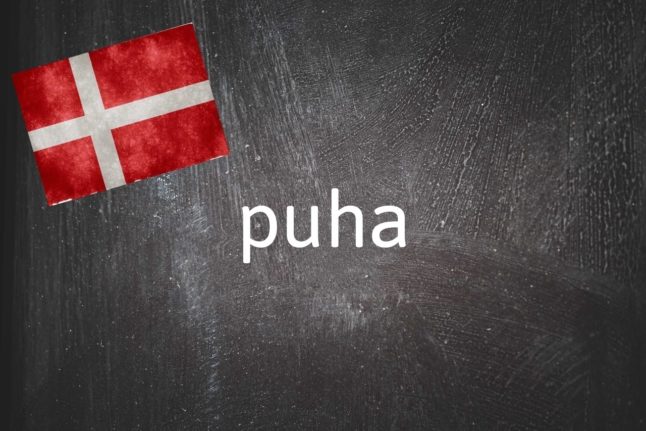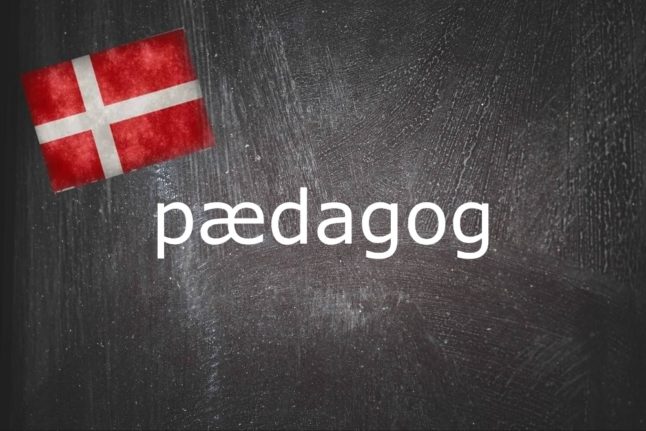What is puha?
Puha is an exclamation which — according to the dictionary, but I can’t quite see it — is onomatopoeic, resembling “the sound that occurs when air is blown out”.
That probably makes it quite similar to saying “ooft” or something similar in English, although puha has variously different contexts.
The adjective forpustet means to be “out of breath”: jeg var forpustet efter min løbetur (“I was breathless after going for a run”). The related verb at puste is “to blow”: jeg puster lysene ud means “I’ll blow the candles out”.
Although they look similar, these words are not related to puha although I do find them useful if you want to memorise the various meanings.
Why do I need to know puha?
It’s a lighthearted exclamation that usually expresses something mildly negative but can also be positive. You might use it to show disgust or distaste at a sight, smell or taste, or just at the thought or suggestion of something that might be off-putting. A stronger exclamation that can be use in the same contexts as these is føj.
If you’re tired or exhausted, you can also use puha as a way of saying “I’m done!”. Repeating the example above, you might saying puha, jeg er forpustet efter min løbetur (“phew, I’m exhausted after going for a run”).
A more positive situation in which puha can be said is to express relief: you might say it after sprinting to catch a bus and just about making it in time.
Pronunciation
It’s easy to pronounce: poo-ha.
Examples
Puha, den der Gamle Ole lugter godt nok stærkt.
Ooof, that Danish cheese smells very strong indeed.
Jeg skulle cykle hele vejen op ad Langelandsgade uden pause. Puha.
I had to bicycle uphill all the way on Langelandsgade [street] without a break. Phew.
Puha, vi nåede hjem lige inden det begyndte at regne.
What a relief, we made it home just before it started raining.



 Please whitelist us to continue reading.
Please whitelist us to continue reading.
Member comments